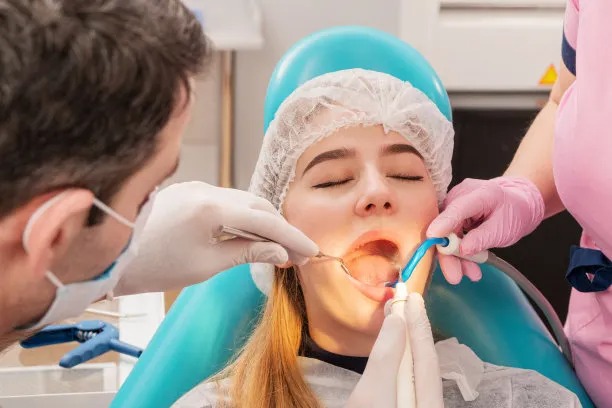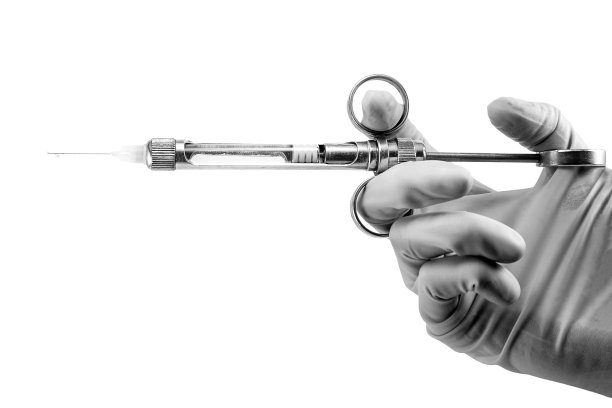Essential Guidelines and Precautions for Ensuring Safe and Effective Root Canal Treatment Procedures
Summary: This article outlines essential guidelines and precautions that ensure safe and effective root canal treatment procedures. Root canal therapy plays a critical role in dental health, and understanding the necessary precautions and steps can enhance the overall outcome for patients. The article covers four main areas: patient assessment and preparation, sterilization and infection control, correct instrumentation and technique, and post-treatment care. Each section provides detailed insights into the importance of following these guidelines to achieve optimal results and minimize complications during root canal procedures.
1. Patient Assessment and Preparation

Before embarking on a root canal procedure, a thorough patient assessment is crucial. This includes a comprehensive dental and medical history to identify any underlying health issues. These factors can influence the treatment outcome and the patient’s overall safety during the procedure. For instance, patients with specific medical conditions, such as diabetes or heart disease, might require special considerations.
Additionally, radiographic examination of the affected tooth is necessary. X-rays help to reveal the extent of the infection and the anatomy of the root canal system. Understanding the anatomy is vital, as different teeth have varying root configurations, which can complicate the procedure. Proper visualization allows the dentist to plan the treatment accordingly and anticipate potential challenges.
Effective communication with the patient about the procedure, expected outcomes, and potential risks is equally important. This helps alleviate anxiety and ensures that the patient understands the significance of post-treatment care, contributing to a smoother recovery process. A well-informed patient is more likely to cooperate and follow the guidelines provided by the practitioner.
2. Sterilization and Infection Control
Infection control is paramount during root canal treatment. Dentists must adhere to strict sterilization protocols to prevent the introduction of bacteria into the root canal system. Starting with the sterilization of instruments, every tool used during the procedure should be autoclaved to eliminate any pathogenic organisms. Disposable materials should be used whenever possible to further minimize infection risks.
Moreover, maintaining a clean operatory by disinfecting surfaces and employing barriers, such as gloves and masks, is essential. This helps to create a sterile environment and reduces the likelihood of cross-contamination between patients. The use of antiseptic rinse solutions before the procedure can also assist in reducing the bacterial load in the oral cavity.
Regular training and updates on infection control practices are important for dental staff. Staying abreast of the latest guidelines from health authorities ensures that all team members understand their roles in maintaining a sterile clinical setting. Moreover, having a systematic protocol for managing any potential exposure incidents reinforces a culture of safety in the practice.
3. Correct Instrumentation and Technique
Utilizing the correct instrumentation is vital to the success of root canal therapy. Dentists must ensure they are equipped with high-quality endodontic instruments that are specifically designed for the procedures. For instance, using rotary instruments can enhance the cleaning and shaping of the canal, promoting better disinfection.
Moreover, mastery of technique plays an essential role in achieving a successful outcome. The dentist must be experienced in navigating the complexities of the root canal system without causing damage to the surrounding tooth structure. Adequate training in endodontic procedures, along with continuous education, ensures that practitioners remain skilled and knowledgeable.
Additionally, proper use of radiographs during the procedure assists in confirming the working length and ensuring that all canal areas are adequately treated. Mistakes in technique, such as failing to adequately clean or fill the canal, can lead to treatment failure, requiring further interventions. Thus, attention to detail and adherence to learned techniques are crucial throughout the procedure.
4. Post-Treatment Care and Follow-Up
Following the completion of a root canal, post-treatment care is critical for successful healing. Patients must be provided with clear instructions regarding pain management, diet, and signs of complications such as swelling or prolonged pain. Educating patients on these aspects can significantly improve their recovery experience.
Follow-up appointments are necessary to assess the healing process and ensure that the tooth is responding well to treatment. Radiographic evaluations during these visits can help identify any potential issues early, such as reinfection or incomplete canal obturation. These checks play a significant role in ensuring the long-term success of the treatment.
Moreover, reinforcing the importance of regular dental check-ups can help in the early detection of potential issues, further contributing to the overall success of dental health. Emphasizing the importance of maintaining good oral hygiene practices after the treatment can also help prevent future complications.
Summary:
In conclusion, adhering to essential guidelines and precautions is vital to ensuring safe and effective root canal treatment procedures. By prioritizing patient assessment, strict infection control measures, proper instrumentation and technique, and thorough post-treatment care, dental professionals can significantly enhance treatment outcomes.
Ultimately, these practices not only protect the patient but also improve overall confidence in dental care procedures. Continuous education and diligence in each step are key to successful endodontic therapy.
This article is compiled by Vickong Dental and the content is for reference only.



